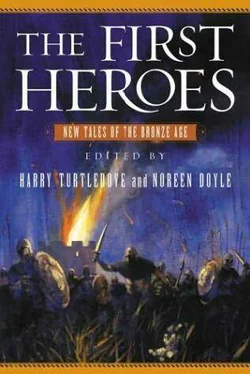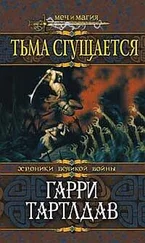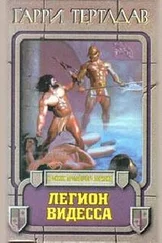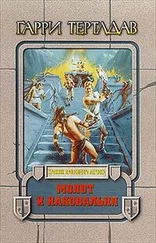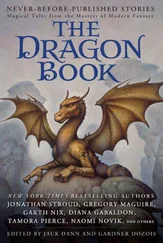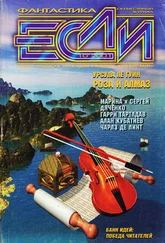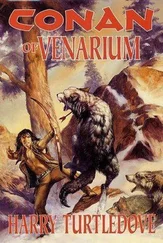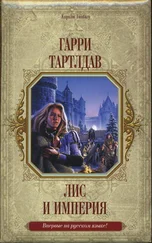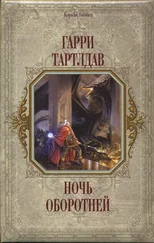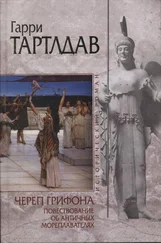Гарри Тертлдав - The First Heroes
Здесь есть возможность читать онлайн «Гарри Тертлдав - The First Heroes» весь текст электронной книги совершенно бесплатно (целиком полную версию без сокращений). В некоторых случаях можно слушать аудио, скачать через торрент в формате fb2 и присутствует краткое содержание. Жанр: Фантастика и фэнтези, на английском языке. Описание произведения, (предисловие) а так же отзывы посетителей доступны на портале библиотеки ЛибКат.
- Название:The First Heroes
- Автор:
- Жанр:
- Год:неизвестен
- ISBN:нет данных
- Рейтинг книги:3 / 5. Голосов: 1
-
Избранное:Добавить в избранное
- Отзывы:
-
Ваша оценка:
- 60
- 1
- 2
- 3
- 4
- 5
The First Heroes: краткое содержание, описание и аннотация
Предлагаем к чтению аннотацию, описание, краткое содержание или предисловие (зависит от того, что написал сам автор книги «The First Heroes»). Если вы не нашли необходимую информацию о книге — напишите в комментариях, мы постараемся отыскать её.
The First Heroes — читать онлайн бесплатно полную книгу (весь текст) целиком
Ниже представлен текст книги, разбитый по страницам. Система сохранения места последней прочитанной страницы, позволяет с удобством читать онлайн бесплатно книгу «The First Heroes», без необходимости каждый раз заново искать на чём Вы остановились. Поставьте закладку, и сможете в любой момент перейти на страницу, на которой закончили чтение.
Интервал:
Закладка:
Was everybody hurting? Leslie supposed so: the avidity with which her coworkers followed the war news smacked of self-medication. Updates rarely came during the workday, but she knew they checked regularly. Trent glared at the TV news, bitter and conflicted, while Megan, unselfconsciously mimicking the familiar Texas accent, asked about "the War Against Terra." Afghanis, caught in the erruption of renewed warfare as winter began to close the passes to their underprovisioned villages, experienced a brief rain of brightly colored food packets.
She sat on the couch, the household still after Trent had gone sullenly to bed, and considered her new book, whose full title proved to be Ancient Mesopotamia: The Eden That Never Was. It compared favorably with Sumer: Cities of Eden, the pretty Time-Life volume that the library already had on its shelves. History Begins at Sumer was unaccountably absent, but Kramer had contributed the text for another Time-Life title, Cradle of Civilization. Leslie was annoyed with Kramer for his tendency to make judgmental distinctions between "conquerors in search of booty" and "peaceful immigrants eager to better their lot," as though migrating populations' worthiness to move into a land depended on their adherence to some United Nations-like ideal of peaceful coexistence. Did that notion represent the spirit of the mid-sixties, or the spirit of Time-Life Books?
In the absence of Kramer's own tome, the earliest volume in Leslie's modest collection was A. Leo Oppenheim's Ancient Mesopotamia: Portrait of a Dead Civilization. Its forthright subtitle intimated Oppenheim's contention that Sumerian-Akkadian-Assyrian civilization was extinct and should be studied for its own sake rather than for its supposed value as the seedbed of human progress. Leslie found she preferred this austere honesty to the pious melioration that saw Gilgamesh, cuneiform, and the Code of Hammurabi as the first toddling steps of mankind's march.
The weeks that followed pulled Leslie in opposite directions: toward the fixity of the past and the lunacy of a fantasy future. She read with disbelief the mornings' news of anthrax spores mailed to TV studios and the nation's capital, with senators' offices contaminated and postal employees dead. The conclusion was inescapable: the United States was under attack by biological agents. The twenty-first century was turning out just as her teenaged sci-fi reading had predicted.
"They say it's Saddam." Trent was following the links from news reports on the spores' surprising sophistication to declarations by "fellows" at right-wing institutions that Iraqi responsibility was certain.
"Well, it certainly isn't the Taliban." The medieval theocrats who were regrouping in disarray under assaults from their warlord adversaries and miles-high bombers seemed poor candidates for the invisible attack that sent the world's superpower into panic, though perhaps (pundits mused) al Qaeda's penchant for low-tech operations staged within the target country had led them to obtain a cache of Soviet-era war germs. Such a theory did not require the hand of Saddam, but Leslie found it hard to push the reasoning further. The idea of pestilence blooming in the nation's nerve centers like sparks falling on straw left her disoriented. She did not fear for her own safety, but felt the axis of her being tilt vertiginously, a slow tipping into boundless free fall.
There were no further attacks, although a Manhattan woman with no traceable connection with the contaminated mails died of inhaled anthrax in Manhattan, and then another—a ninety-four-year-old widow named Ottilie—in central Connecticut. Midway geographically, Leslie wondered if she should feel her family was in the crosshairs. She didn't, taking comfort in statistics. Word that spores might cling to letters that came through New Jersey moved Leslie to discard all junk mail at the curb.
A week later a letter was delivered sealed in a plastic wrapper containing a notice that the U.S. government had discovered traces of anthrax on the envelope and had subjected it to irradiation: it should be discarded unopened if it was believed to contain food or camera film. Leslie and Trent stared, unwilling to tear through the wrapper (the letter within was indeed junk mail) or to throw it away. It was an undoubted historical document, but to save the thing would make it a relic. Trent carefully photographed both sides with their digital camera and sold it on eBay for $85.
Cries for retaliation rose, angrier for being balked. Since Afghanistan could not be attacked twice, other targets were deemed plausible, usually Iraq. "Look at this," said Trent angrily, gesturing at his screen. "They're all so sure of themselves."
"I don't know why you're reading that at all," Leslie replied. "The chat boards of wargame fans isn't a place for political insight." "These are my potential readers; I should know what they're thinking."
"I don't even believe that's true." Trent was clawing for a toehold, anxious for demographics that the Web couldn't give him. He showed more self-confidence with work that he respected.
Later she glanced at her screen and found a window open to the posts that had enraged him. Vaunting and aggressive, they bore the signature of angry, powerless guys desperate to be knowledgeable. Let's do it right this time and Next time we nuke the K'abah and It's time we revisited The Land Between the Rivers.
By this point Trent was convinced that the anthrax attacks had not been the work of Islamic militants at all. He suspected rogue forces within the American "bioweapons community," which had secretly developed the strain of anthrax. "Even the administration has admitted that the spores belong to the 'Ames strain,'" he argued, link-clicking deeper toward the documentation he sought. Leslie found his explanations painful to listen to, and she shrank without looking at those windows he left on her screen: laparoscopic images of warblog, like lab reports of current pathology.
Had Sumer suffered from pestilence? Though Leslie recalled no references to the plague, or even to disease as something contagious, it seemed incredible that cities of thirty thousand people, which created standing bodies of water and relied upon wells for drinking, were not periodically ravaged by pandemics, especially during wars. Perhaps Nanshe loses much of her family to cholera during a siege; it was a more plausible involvement than engaging her somehow in the business of battle.
No Sumerian myths mention plague; none of the images of piled dead picture it, nor is it mentioned in legal records. Mortality is ubiquitous, but the index entries for DEATH in Kramer's Cradle show an exclusive interest in the Sumerian afterlife, while those for The Eden That Never Was focus on the archeology of grave sites. Gilgamesh showed no fear of catching Enkidu's fever, nor Enmerkar of Lugal-banda's. Death did not leap from victim to victim like a flea; each mortal possessed his own, patient and implacable. Whatever the hero's achievements in life, in the Land of No Return he wandered naked, like all the other dead, hot and eternally thirsty.
It was stifling on the second floor, the day's unseasonable warmth undispersed by the mild evening, and Leslie kicked away the damp sheets to rise and open windows. She continued through Megan's room and the baby room, now choked with books, opened the bathroom window (the tiles were barely cool beneath her soles and the toilet seat actually warm, as though someone had preceded her on it) and thence to the end of the hall, where the far window would allow a cross breeze. From there it seemed natural to descend the stairs, for the screened patio doors admitted the night air and she could walk around freely in the unlit rooms.
Opening the refrigerator would illuminate the uncurtained kitchen, and an attempt to fill a cup in the dark clattered the stacked dishes so loudly that she jumped back. Leslie wandered instead toward the front of the house, slowly—she sank her bare foot into the warm furry side of Ursuline, too torpid even to stir—but guided by the faint light coming from the office. Her own computer adjoined an open window so she sat at Trent's, where the monitor's low setting cast just enough light to see by. Trent never kept loose papers on his desk, but she could make out a page of his handwriting lying between Odile and History Begins at Sumer. She turned the light up slightly, and saw the journal Megan had given him for his birthday, blank sheets bound in dyed silk, held open between the two volumes. He had written in it with his fountain pen—another gift—and weighted the pages flat to dry.
Читать дальшеИнтервал:
Закладка:
Похожие книги на «The First Heroes»
Представляем Вашему вниманию похожие книги на «The First Heroes» списком для выбора. Мы отобрали схожую по названию и смыслу литературу в надежде предоставить читателям больше вариантов отыскать новые, интересные, ещё непрочитанные произведения.
Обсуждение, отзывы о книге «The First Heroes» и просто собственные мнения читателей. Оставьте ваши комментарии, напишите, что Вы думаете о произведении, его смысле или главных героях. Укажите что конкретно понравилось, а что нет, и почему Вы так считаете.
